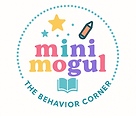Why Is Social Skills So Important? - The Ivy League
- Tawana McNair, M.A., BCBA

- Mar 12, 2021
- 2 min read
Updated: Apr 9, 2025
It is reported that 60% of children go to school with the cognitive skills needed to be successful in the environment, however only 40% have the social skills necessary to succeed in kindergarten (National Academy of Sciences). With this key information is it pivotal that children are able to develop social emotional skills prior to entering school. If they are already in school, it is also necessary that they receive additional support to add to their success in that environment.
So, why join a social skills program today? The answer is why not? Any assistance to help your child achieve their goals and achieve social integration appropriately will only assist in the child’s overall development. Children typically engage in positive interactions when they are surrounded by adults and peers. Reinforcing this engagement will increase your child’s want to engage in additional interactions. Children can pick up both positive and negative behaviors, so surrounding children with more positive learning opportunities will assist in competing with the easily accessed negative behaviors.
In school, children encounter a variety of situations that challenge their social emotional well-being. It is necessary that when in school they have the ability to maintain their confidence and interact with others to build on positive relationships with both peers and adults. There are key social - emotional skills that children need when they enter school. According to Shonkoff and Philips (2000), children require concentration, persistence on difficult task presented, ability to communicate emotions, follow and listen to instructions, attentiveness, and the ability to solve social problems.
When children have a repertoire of social skills, they are able to engage, have success and an appropriate well-being. This includes when they are dealing with a crisis. Attending social skills groups that appeal to both a younger audience and older audience can assist your child in developing peer relationships, self-regulating, and expressing themselves in a culturally appropriate manner.
The Collaborative for Academic, Social and Emotional Learning (CASEL, 2003) stated the important components of social emotional development in young individuals. They state that the important parts are self-awareness, social awareness, self-management, and responsible decision making. These components they reported are important for the well-being of the young person.
The benefits of social skills have been outlined throughout this post, now lets talk about when children do not have the appropriate social skills. When children do not have the appropriate social skills, they have difficulty in interpersonal relationships that include both adults and peers, children may often engage in problematic behavior. Children may offer sugar rejection from other peers within and outside of the educational setting. Therefore, it is important for children to work on social emotional development when possible.

References
Ashdown, Daniela, and Michael Bernard. “Can Explicit Instruction in Social and Emotional Learning Skills Benefit the Social-Emotional Development, Well-Being, and Academic Achievement of Young Children?” Early Childhood Education Journal, vol. 39, no. 6, Jan. 2012, pp. 397–405. EBSCOhost, doi:10.1007/s10643-011-0481-x.
National Association of School Psychologist. “Social Skills: Promoting Positive Behavior, Academic Success, and School Safety.” NASP Center, 2002, www.naspcenter.org/factsheets/socialskills_fs.html.
National, Research Council, et al. From Neurons to Neighborhoods : The Science of Early Childhood Development : The Science of Early Childhood Development, edited by Deborah A. Phillips, and Jack P. Shonkoff, National Academies Press, 2000.ProQuest Ebook Central, https://ebookcentral-proquest-com.tc.idm.oclc.org/lib/teacherscollege-ebooks/detail.action?docID=3375446.





Comments